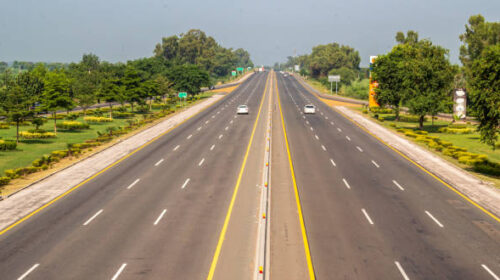There are up to 85 locations across motorways, which are available for the development of DC-fast charging infrastructure for Electric Vehicles (EVs) to prevent ‘range-anxiety’ in adoption of modern electric cars in the country, a report identified.
Titled ‘Developing Electric Vehicle Charging Infrastructure Across Highways and Motorways of Pakistan’, the report was prepared to highlight the issues and potential being faced by the users in adoption of EVs by the LUMS’ energy institute in collaboration with the ministry of Climate Change and the National Center in Big Data and Cloud Computing (NCBC).
“There are almost 85 locations across M-1, M-2, M-3, M-4, M-5, M-9, and N-5 are available for the development of DC-fast charging infrastructure for Electric Vehicles (EVs) to prevent ‘range-anxiety’ in adoption of modern electric cars in Pakistan,” it said.
The report also identifies 15 ‘prioritized’ locations for the development of charging infrastructure as a starting point to promote the EVs in the country. It is important to mention here that Pakistan is a signatory to the Paris Climate Agreement and has pledged to reduce the green-house gas emissions in the country by 20 percent by 2030.
In order to fulfill the commitments to the agreement and meet the United Nation’s sustainable development goals, it is important to reduce the emissions from the transportation sector. Hafiz Owais Ahmed Khan, one of the authors of the report, while talking to The News, expressed if 10 DC-fast chargers were deployed at each of the locations, they would be sufficient to cater most charging requirements for inter-city commute across almost all major metropolitan areas of Pakistan.
However, he added, charging infrastructure at only these locations would serve the charging requirements in the short-term due to limited EV footprint in the country at the moment. When EVs will gain a larger share in the transportation sector in the long-term, charging infrastructure will be required at almost all identified location, he highlighted.
The government had approved National Electric Vehicle Policy (NEVP) in 2019 to enable fast-track EV adoption by incentivizing EV users as well as manufacturers. Despite the incentives offered by the NEVP, development of DC-fast charging infrastructure on motorways and highways to prevent ‘range-anxiety’ remains a critical challenge for widespread EV adoption.
The report is compiled after collecting data pertaining to daily traffic flow on highways and motorways in the country. Besides, various governmental agencies and departments such as National Highway Authority (NHA), National Transport Research Centre (NTRC), National Highways and Motorways Police (NH&MP), and many others also helped in gathering the data.
The data on daily traffic flow on the concerned motorways from December 2019 – October 2020 was collected. Further, data related to M-2 was estimated based on physical observations, estimates, google traffic maps and other sources. Similarly, the research team members traveled across the motorways to identify optimal locations for the development of DC-fast charging infrastructure based on predefined criterion.







